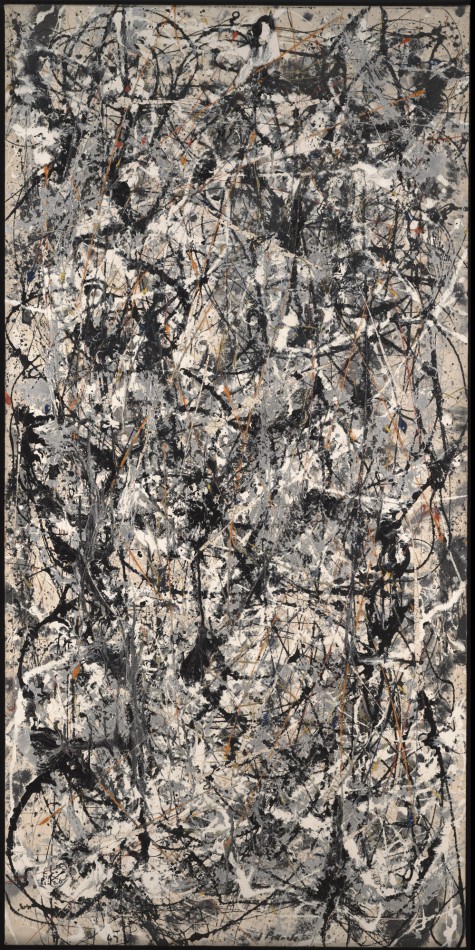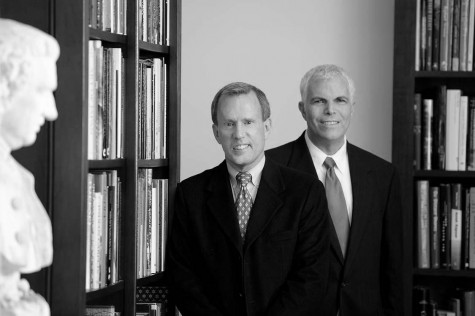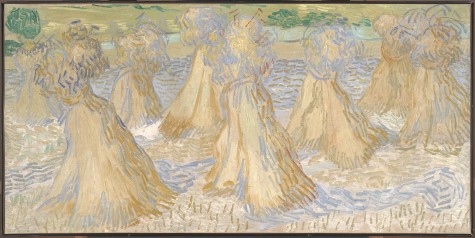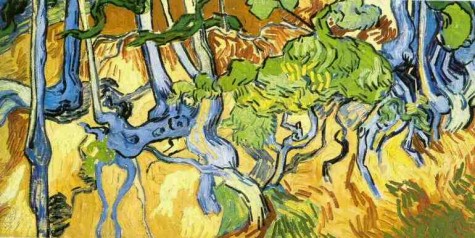Part of what’s most fun about working on Arts & Letters Live is getting to hear the buzz about new books several months before they are released. We first heard about Van Gogh: The Life by Steven Naifeh and Gregory White Smith last winter and couldn’t wait for the release. This new biography came out less than a month ago to tremendous acclaim. Leo Jansen, Curator at the Van Gogh Museum in Amsterdam, called it “the definitive biography for decades to come,” and the authors were profiled on 60 Minutes.
We are thrilled to be able to host these two authors for a program at the Dallas Museum of Art on Monday, November 14. They will discuss their new book and the similarities between Vincent van Gogh and Jackson Pollock, the subject of their Pulitzer Prize-winning biography Jackson Pollock: An American Saga.
Steven Naifeh and Gregory White Smith were gracious enough to answer a few questions for us in advance of their event.
How did you come to tackle Vincent van Gogh as a subject for this book?
While we were still working on our biography of Jackson Pollock, more than twenty-five years ago, we began to think about the next artist we might want to write about. The challenge for a biographer is to find a subject (1) who is significant, in terms of the work he or she has left behind; (2) who led an interesting life; (3) whose life had a particular impact on the work; (4) who left behind enough of a record in order to be able to reconstruct the life; and (5) who hasn’t already been the subject of a definitive, or even a thorough, account. No one met these criteria better than van Gogh. The only hurdle was that we don’t read Dutch, a hurdle got past with the help of eleven translators.
Other than Vincent van Gogh himself, who is the most interesting figure that you write about in this book?
Theo, certainly. He was easily the most important person in van Gogh’s life. He was Van Gogh’s only consistent source of emotional and financial support. He was an interesting person in his own right – both audacious enough to be one of the first dealers in Paris who showed the work of the impressionists, but also conservative enough to show only work he knew would sell. He was intensely conflicted in his feelings for his brother –fully aware of Vincent’s willingness to take advantage of his generosity, furious that Vincent caused their family so much trouble, and angry that Vincent refused to accept his advice about how to make his work more salable, yet caring for him deeply, utterly.
How do you feel van Gogh’s letters shaped Van Gogh: The Life?
The letters are the starting point for any biographer of van Gogh. They are astonishingly long and detailed, and yet they often have a manipulative intent. Van Gogh usually wanted something from Theo, and he was sometimes elegant, sometimes ham-fisted, in his efforts to cloak his requests. But because of van Gogh’s intermittent self-knowledge, because of his extraordinary intelligence and intellect, because they were written for the most part to one person, and because he didn’t think anyone else would ever read them, van Gogh’s letters open an almost unique window onto a great creative mind.
Do you have a favorite work of van Gogh’s? What draws you to that piece?
We have many, many favorites, but one that comes to mind is a painting of underbrush in the Van Gogh Museum collection. It shows both his absolute mastery of color – extraordinary and subtle combinations of browns and purples and blues, hundreds and hundreds of them – and a dazzling display of his command over his brush, and in particular his Sargent-like ability to paint wet on wet.
Have you visited Dallas before? If so, what did you think of the city?
(Steven) Yes, I have a lot of family in Texas – in fact I was Congressman Charlie Wilson’s first intern on Capitol Hill. Dallas has some spectacular architecture, including I. M. Pei’s Morton H. Meyerson Symphony Center, and the Museum has a first-rate collection, including two key works by Jackson Pollock, Portrait and a Dream and Cathedral. We have not yet seen the Nasher Sculpture Center and are thrilled at the opportunity to see it.

Cathedral, Jackson Pollock, 1947, Enamel and aluminum paint on canvas, Gift of Mr. and Mrs. Bernard J. Reis
The November 14 event is sold out but overflow seating is still available in a live simulcast in the Center for Creative Connections Theater.
Katie Hutton is Program Manager of Arts & Letters Live at the Dallas Museum of Art.



